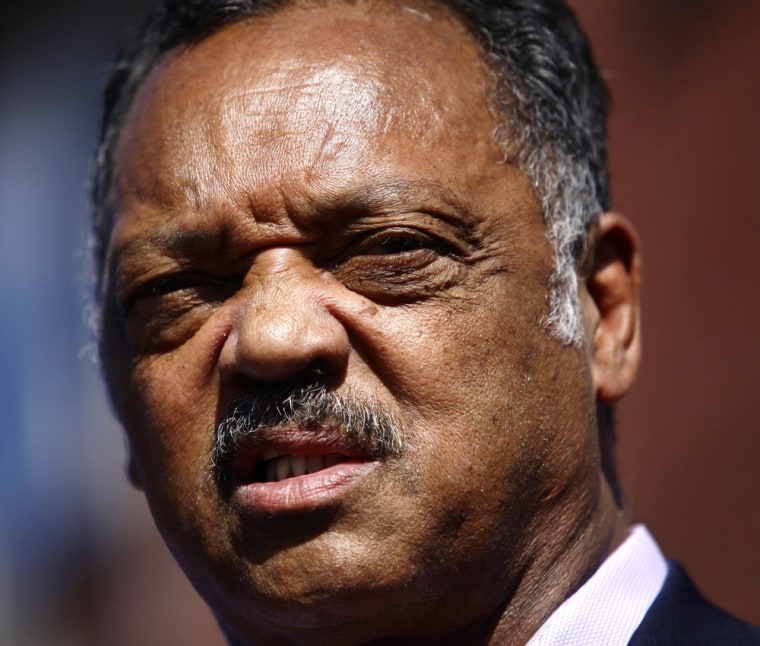By Ben Adler
Charlotte, N.C. — Rev. Jesse Jackson, the civil rights activist and two-time Democratic presidential candidate, gave speeches at the 1984 and 1988 Democratic conventions that are still watched today for their inspiring articulation of liberal values. Jackson's mission as a candidate was to represent the needs of society's disadvantaged.
As he said in '84, regarding the Democrats' purpose, "Our mission: to feed the hungry; to clothe the naked; to house the homeless; to teach the illiterate; to provide jobs for the jobless." In '88 he famously stood to the GOP's demagoguery of the poor as "welfare queens."
"Most poor people are not lazy," said Jackson. "They are not black. They are not brown. They are mostly white and female and young. But whether white, black, or brown, a hungry baby's belly turned inside out is the same color—color it pain, color it hurt, color it agony.”
I asked Jackson what he would like to see President Obama and other major speakers at this year's convention discuss. He raised two issues of civil rights and social justice. "Protecting the right to vote is the most important aspect of this election," said Jackson, referring to the various Republican-led movements around the country to alter current voting rules. "Because of purging [voters from rolls] and suppression, the winner can lose and the loser can win."
The other issue Jackson mentioned was poverty. "There are 50 million people living in poverty, 54 million food-insecure," said Jackson. "They should be made secure, and they should be inspired that their vote will translate into food and housing."
Democrats have generally abandoned such unreconstructed liberal rhetoric in recent years, but Jackson holds out hope that the party of the New Deal and the Great Society will return to its roots.

